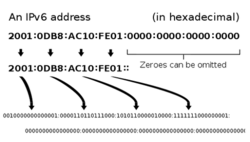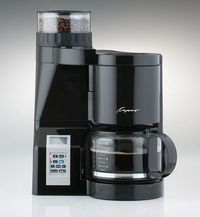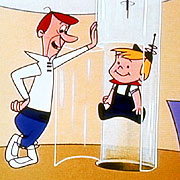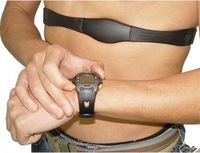Think of this as Volume 16, Number 23 of A-Clue.com, the online newsletter I've written since 1997. Enjoy.

We're about to run out of Internet addresses, they said. (Well, there's a workaround, but…) Remaining Ipv4 addresses are rising in price, and we're going to run out of new ones in 2014. (True, but…) Ipv6 is better – more efficient, more secure, inevitable. (As to the last, well, sorta…)
The fact, we've been kicking the can on this for a decade. Ipv6 was actually proposed in 1996, the idea being to expand the address space from four sets of three hexadecimal numbers each – xxx.xxx.xxx.xxx – to eight sets of four – xxxx.xxxx.xxxx.xxxx.xxxx.xxxx.xxxx.xxxx. Instead of having 32 bits – 4.3 billion addresses – you have 128 bits – 3.4 x 10 to the 38th power addresses. You convert from one to the other by putting zeroes in front of the Ipv4 number.

As you can see, in our current world this is pretty hard to explain. The simplest way to say it is your coffee machine can now have its own IP address.
But what does it mean for a coffee machine to have an IP address?
Well, what I called “Always-On” back in 2003 is now called the Internet of Things. A coffee pot is a thing. If it has its own Internet address, you can tell it when you want your coffee, or it could communicate with your alarm clock about the coffee hour, and the coffee comes out piping hot.
Big deal, you say. But as I've been saying for a decade now, this can become a very big deal indeed:
-
An intelligent chip in your lawn, with its own IP address, can tell when the soil is dry and communicate with your sprinkler to turn the water on. Watering happens by need rather than on a schedule. Water doesn't turn on when it's raining. You use less water and don't have to think about it.
-
Single-chip cameras around your home, each with their own IP address, can alert the police when a burglar is trying to gain entry, take their picture, let the police know what's going on and where. These can be made redundant, they can be made so small burglars won't find them, they could be connected in both wired and wireless modes, they could scan from neighbors' porches and phone poles in case the burglar tries to jam the WiFi or cut a wire.
-
You can wear a “watch” that actually tracks your heart rate and blood pressure, or swallow a capsule that does regular tests of your blood sugar, so a doctor or ambulance (or you) can be alerted before that heart attack or stroke comes up on you. I called this a “killer app” back in the day – it's a pun.
-
Your refrigerator could have sensors that check the condition of the meat, of the milk, of the vegetables, alerting you to incipient spoilage, creating shopping lists automatically. They can interact with a recipe database so you know what you can make before you get home.
The point is we're combining intelligence with wireless connectivity, so every device in your home, in your life, on your person, knows what is supposed to be happening, and knows what to do when something goes wrong. This saves money, this makes us more secure, and it can save your life. (Yes, it can even help you find your keys.)
Over the last decade small companies have tried all sorts of standard and non-standard mechanisms to try and make this happen. They've sought shorter, higher-wavelength spectrum spaces, at lower power, to avoid interfering with your Web browsing. They've tried integrating with a host of proprietary and semi-proprietary protocols.
It hasn't worked, because they have not been able to use the recognized industry standards for all this. Ipv6 will be encrypted by default, it will give every device its own address, it will give each person their own address space.

But with industry standards now available, the consumer market can finally take off. Maybe, possibly. If ISPs really do cooperate . (To them it's mostly an expense, not a benefit, because the market we're talking about doesn't exist yet.) If the industry can get its act together. If we don't let the concern trolls scare us away from it.
In short, an important day. But just one step along a very long path. One that leads to a better life, one that's structurally very different from the one you lived in the 20th century.












click through the next page
Dana Blankenhorn: Last Roadblock to A New World is Removed
anal bleeding
Dana Blankenhorn: Last Roadblock to A New World is Removed
just click the following post
Dana Blankenhorn: Last Roadblock to A New World is Removed
utility warehouse
Dana Blankenhorn: Last Roadblock to A New World is Removed